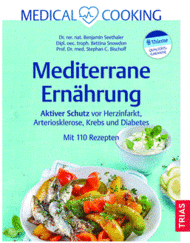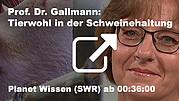Knowledge & Perspectives
AMP-Activated Protein Kinase (AMPK)-Dependent Regulation of Renal Transport [27.11.2018]
Based on a growing list of studies indicating the pivotal role of AMPK as a metabolic-sensing regulator of a multitude of transport processes in the kidney, this paper of recently appointed Professor Föller and a colleague from the University of Halle/Saale reviews the AMPK-dependent regulation of membrane transport along nephron segments and discusses physiological and...more
Duckweed – a new source of polyunsaturated fatty acids?
[27.11.2018]
Duckweed as food ingredient can be found in some Asian countries already. Hohenheim Professor Walter Vetter participated in a current study that analyzed the nutritional value of duckweed and found a high amount of unsaturated fatty acids and other nutrients in this plant. Given its fast growth, the researchers confirm the high potential of duckweed as food component and/ or...more
4th Xenopus Conference [26.11.2018]
When: Friday, 07.12.2018; 11:00-17:00 Where? Lectures (11:00 - 14:40) at the Aula, Hohenheim Palace, Stuttgart Poster session (15:00 - 17:00) Institute for Zoology, BIO II, 2nd floormore
Useful bacteria:
Research team discovers filter function of the stomach
[22.11.2018]
A novel methodical approach developed by Prof. Fricke of the University of Hohenheim and colleagues from Graz allows for a more accurate characterization of the gastric microbiome and indicates that our stomach influences the composition of the intestinal microbiome (Wurm et al, 2018)more
Sensoproteomics: A New Approach for the Identification of Taste-Active Peptides in Fermented Foods [06.11.2018]
In a current study by the TUM with the participation of the Hohenheim professor Jörg Hinrichs, a new approach was developed to quickly and unambiguously identify taste-giving compounds in food. This process, known as "Sensoproteomics", can be used in high-throughput processes to optimize production processes.more
Puzzles - the new protection factor for cognitive aging. [06.11.2018]
In times of demographic change, the prevention of neurocognitive disorders is one of the major medical challenges. In a study with the participation of Hohenheim scientists, the cognition-enhancing properties of the puzzle were examined.more











